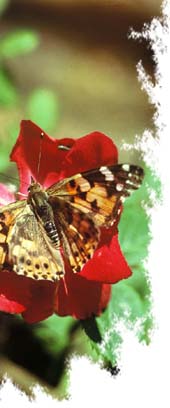|
|
|
|
Development of Eco-Agrotourism in the Southern Caucasus
Project Aims
Project Objectives
Project Results
Code of Ethics for tourists and touroperators
This project was implemented under the auspices of the EURASIA Foundation South Caucasus Cooperation Program.
Project partners: Ecotourism Association (Armenia), "Pilgrim" Environmental NGO (Azerbaijan), Agrotourism
Association (Georgia).
Project Aims:
- To promote the development of the interconnected Eco-Agrotourism Industry in the region, thus stimulating the
progress of private businesses all over the territory of the Southern Caucasus.
- Creation of a common favorable image of the Southern Caucasus for the successful integration into the international
Eco-Agrotourism Community.
Project Objectives:
- Research and survey of Eco-Agrotourism potential.
- Creation of common field for advertisement and marketing of Eco-Agrotourism product of Southern Caucasus by
modern means of database, a joint website and an advertisement journal.
- Development of joint Eco-Agrotourism tours and advertisement and promotional activities in international and local
markets.
- Provision of tour routes to private tourism companies, as well as consultative and technical support to private
businesses for their implementation.
Project Results
- Established database on Eco-Agrotourism of the region, including appropriate infrastructure and archive of natural
and cultural heritage.
- Created joint tour routes on Eco-Agrotourism, completed activities on their advertisement and promotion, as well as
provided consulting and technical assistance to private businesses for their implementation.
- Created Web-Site "Eco-Agrotourism in South Caucasus".
- Published advertisement journal "The Guide to South Caucasus Eco-Agrotourism".
The project resulted in the involvement of communities from all regions of all three countries- namely rural populations,
personnel of protected areas and owners of hotels, hostels, resorts, and restaurants in virtually all spheres of the tourism
industry (transportation, hosting, food, souvenirs, guides, various ethnic-cultural events, etc). Thus the development of
rural communities and the functioning of medium and small tourism businesses and tourism organizations in the protected
areas is supported and stimulated.
The collected information material is used to attract investments in these areas.
Code of Ethics for tourists and touroperators
- Minimize negative impact on ecological systems and ethnic populations. Groups are small in number to prevent adverse effects on
the environment. Tour members are briefed about each encounter in the tour, and what behavior will provide the least negative
impact on the local environment.
- Employ only qualified specialists in the field of interest for each tour. Guide lectures are informative, understandable and accurate.
Activities are enjoyable, but not detrimental to the natural and ethnic environment.
- Appropriate pre-tour preparation. Tour members are briefed before arrival about the ecological and ethnic cultures they will
encounter in their travel, as well as the unique cultural environment in Caucasus, helping them to enjoy Caucasus without
inadvertently having a negative impact as a guest. Customs, traditions, appropriate behavior as a guest, ways to prevent upsetting
the ecological balance are maintained and encouraged by trained guides, who are working scientists in the field of interest for the
tour, and concerned about saving their environment.
- Promote local conservation and cultural contact through Ecotourism. The Ecotours employ local people at all levels of
management and operation. Wherever possible, service providers come from the eco and ethnic areas to be visited. Contact
between Tour members and the local population is encouraged to both promote inter-cultural understanding and to promote eco
friendly businesses, which will do much to preserve the environment.
- Support local ecological initiatives. Income from Ecotours employ scientists, naturalists and the local population. Tour prices
include a donation to fund ecological preservation and maintenance programs.
- Waste Management Practices. Ecotours will promote responsible waste management at all times, including using recyclable and
biodegradable products whenever possible, advising tour members how to minimize the amount of disposable items brought into
Caucasus, and insuring all waste products from a tour are removed from visited areas in an eco-friendly way.
- Encourage personal commitments from Tour Members. Ecotours encourage tour members to aid in conservation efforts in
Caucasus, by contacting appropriate authorities on the value and need for conservation in Caucasus, volunteering for local
conservation projects, and aiding in the budding education process on the local level to the benefits of eco-friendly living.
This site was made possible through the support provided by the US Agency for International Development through the Eurasia Foundation. The opinions expressed herein are those of the author(s) and do not necessarily reflect the views of the US Agency for
International Development or the Eurasia Foundation.
|
 |
|
|
|

|
 |
©
Armenian Ecotourism Association
Eco-Agrotourism in South Caucasus, 2002 |
|